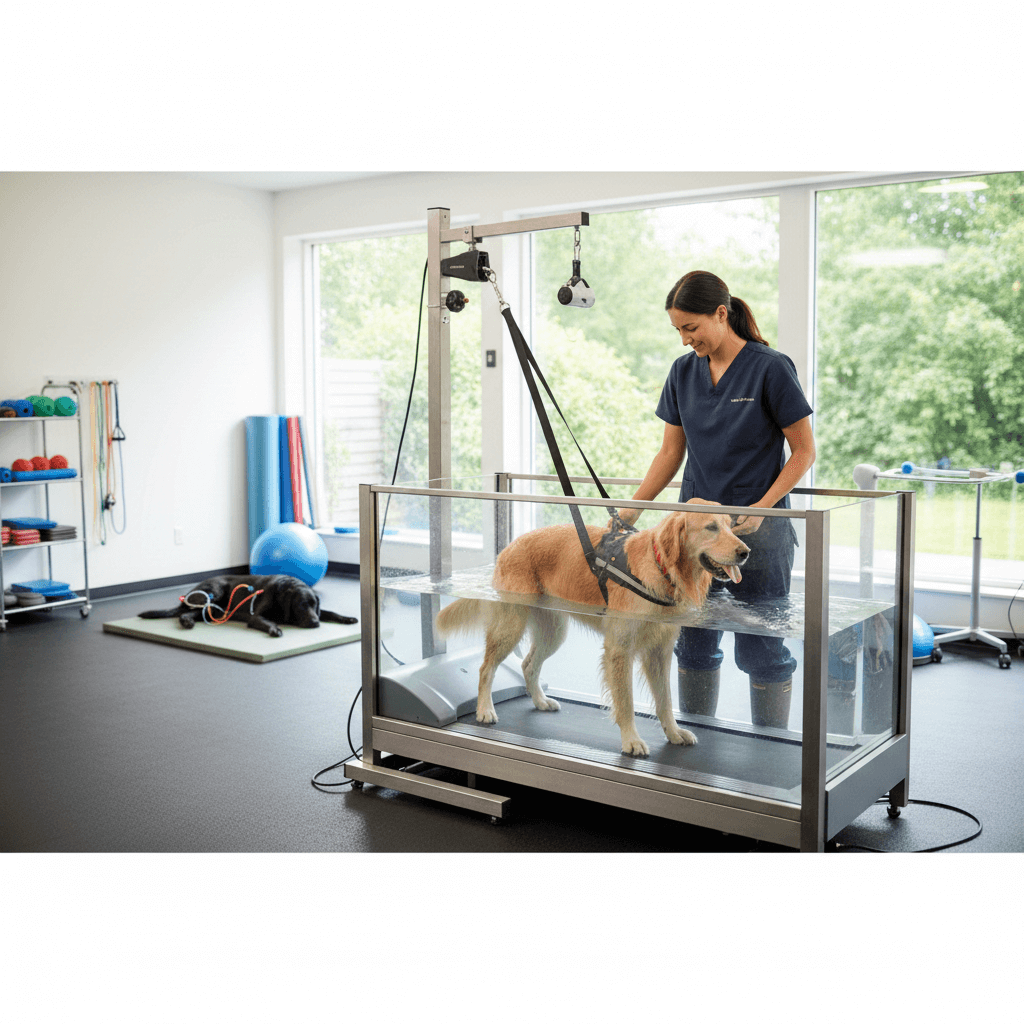Dog Diseases That Cause Aggression: Understanding the Underlying Causes
Aggression in dogs can be alarming and challenging for pet owners to manage. While behavioral issues like fear, anxiety, or lack of training often play a role, certain medical conditions can also trigger aggressive behavior. These diseases may affect your dog’s brain, hormones, or overall health, leading to uncharacteristic outbursts. Identifying whether aggression stems from a medical issue is crucial for ensuring your dog receives the proper care and treatment. In this guide, we’ll explore the most common dog diseases that cause aggression, their symptoms, and how to address them. By understanding these conditions, you can better support your furry friend and strengthen your bond.
Common Dog Diseases That Lead to Aggression
Several medical conditions can alter a dog’s behavior, making them more prone to aggression. These diseases often disrupt normal brain function or cause physical discomfort, which can manifest as irritability or hostility. Here are some of the most prevalent conditions:
Rabies : A viral disease that attacks the central nervous system, causing erratic behavior, including aggression and biting.
Hypothyroidism : Low thyroid hormone levels can lead to mood swings, lethargy, and unexplained aggression.
Cushing’s Disease : Excessive cortisol production can result in irritability, restlessness, and aggressive tendencies.
Brain Tumors : Tumors in the brain can press on areas controlling behavior, leading to sudden changes in temperament.
Seizure Disorders : Conditions like epilepsy can cause confusion and aggression during or after seizure episodes.
If your dog exhibits sudden or unusual aggression, it’s essential to consult a veterinarian to rule out these underlying health issues.
Signs That Aggression May Be Health-Related
Distinguishing between behavioral aggression and aggression caused by illness can be challenging. However, certain signs may indicate that your dog’s aggression has a medical root.
Sudden Behavioral Changes : A previously friendly dog becoming aggressive overnight could signal an underlying health problem.
Physical Symptoms : Look for signs like lethargy, weight loss, or excessive thirst, which may accompany diseases like hypothyroidism or Cushing’s.
Neurological Symptoms : Seizures, disorientation, or difficulty walking may point to brain-related conditions like tumors or encephalitis.
Pain or Discomfort : Growling or snapping when touched in specific areas could indicate pain from arthritis, injuries, or internal issues.
Unusual Vocalizations : Whining, barking, or growling without apparent reason may suggest neurological or hormonal imbalances.
Recognizing these signs early can help you seek timely veterinary intervention and address the root cause of your dog’s aggression.
Check this guide 👉Cushings Disease in Dogs: Best 7 Health Tips!
Check this guide 👉Can Vestibular Disease Kill a Dog? Best 7 Expert Tips!

Behavioral Signs of Aggression | Possible Medical Causes |
|---|---|
Sudden snapping or biting | Rabies or brain tumors |
Irritability or mood swings | Hypothyroidism or Cushing’s |
Aggression during seizures | Epilepsy or brain disorders |
Pain-induced aggression | Arthritis or dental issues |
Confusion followed by hostility | Encephalitis or infections |
Steps to Diagnose Aggression-Related Diseases
When aggression appears to stem from a medical condition, veterinarians follow a systematic approach to diagnose the underlying issue. Here’s what the process typically involves:
Comprehensive Physical Exam : The vet will assess your dog’s overall health, looking for signs of pain, discomfort, or abnormalities.
Blood Tests : Blood work helps detect hormonal imbalances, infections, or organ dysfunction linked to aggression.
Imaging Studies : X-rays, MRIs, or CT scans may be used to identify brain tumors, injuries, or other structural issues.
Neurological Evaluation : Observing your dog’s reflexes, coordination, and behavior can reveal signs of neurological disorders.
Behavioral Assessment : A detailed history of your dog’s aggression patterns helps differentiate between medical and behavioral causes.
Accurate diagnosis is the first step toward effective treatment and improved quality of life for your dog.
Treatment Options for Aggression-Causing Diseases
Once a medical cause of aggression is identified, treatment focuses on addressing the underlying condition and managing symptoms. Here are some common approaches:
Medications : Hormone-regulating drugs, anticonvulsants, or antibiotics may be prescribed depending on the diagnosis.
Pain Management : Pain relief medications or therapies can reduce discomfort and associated aggression.
Surgery : In cases of brain tumors or severe injuries, surgical intervention may be necessary.
Behavioral Therapy : Combining medical treatment with professional training can help recondition your dog’s responses.
Lifestyle Adjustments : Dietary changes, stress reduction, and environmental modifications support recovery and minimize triggers.
With a tailored treatment plan, many dogs recover fully and regain their gentle personalities.
Proactive Steps to Minimize the Likelihood of Disease-Related Aggression
Preventing aggression caused by medical conditions starts with maintaining your dog’s overall health and well-being. By staying vigilant and addressing potential issues early, you can reduce the risk of diseases that may lead to aggressive behavior.
Regular Vet Check-Ups : Schedule annual or biannual veterinary visits to monitor your dog’s health and catch problems early.
Balanced Diet : Provide a nutritious diet tailored to your dog’s age, size, and breed to support their immune system and hormonal balance.
Parasite Prevention : Keep your dog up-to-date on flea, tick, and heartworm prevention to avoid infections that could affect their behavior.
Stress Management : Create a calm and predictable environment to minimize anxiety, which can exacerbate underlying health issues.
Monitor Behavioral Changes : Pay attention to subtle shifts in mood or behavior, as they may indicate an emerging health problem.
By taking these preventive measures, you can help ensure your dog remains healthy and less prone to aggression caused by illness.
Caring for Your Dog During and After Treatment
If your dog has been diagnosed with a disease that causes aggression, supporting their recovery is essential for restoring their quality of life. Here are some ways to aid their healing process:
Medication Adherence : Administer prescribed medications consistently and follow your vet’s instructions carefully.
Create a Safe Space : Designate a quiet, comfortable area where your dog can rest without feeling threatened or overstimulated.
Limit Triggers : Avoid exposing your dog to situations, people, or animals that may provoke stress or hostility.
Positive Reinforcement : Reward calm and non-aggressive behavior with treats, praise, or playtime to encourage progress.
Gradual Reintroduction : Slowly reintroduce social interactions or activities once your dog shows signs of improvement.
With patience and consistent care, many dogs recover fully and regain their trust and gentleness over time.
Debunking Myths to Better Understand Your Dog’s Behavior
Aggression in dogs is often misunderstood, leading to incorrect assumptions about its causes and solutions. Clearing up these misconceptions can help you address the issue more effectively.
Myth: Aggression Is Always Behavioral : In reality, many cases of aggression stem from undiagnosed medical conditions.
Myth: Aggressive Dogs Are “Bad” : Aggression is often a symptom of fear, pain, or illness, not a reflection of the dog’s character.
Myth: Punishment Fixes Aggression : Punishing an aggressive dog can worsen the behavior, especially if it’s medically driven.
Myth: Only Certain Breeds Are Aggressive : Any breed can exhibit aggression due to health issues or environmental factors.
Myth: Aggression Can’t Be Treated : With proper diagnosis and treatment, many dogs overcome aggression and live happy lives.
Understanding the truth behind these myths allows you to approach your dog’s aggression with empathy and informed decision-making.
Frequently Asked Questions About Dog Diseases That Cause Aggression
Can rabies cause aggression in dogs?
Yes, rabies is notorious for causing erratic and aggressive behavior due to its impact on the nervous system.
How do I know if my dog’s aggression is medical or behavioral?
Sudden aggression with no prior history often points to a medical issue, while consistent patterns may indicate behavioral problems.
Is hypothyroidism treatable in dogs?
Yes, hypothyroidism can be managed with lifelong hormone replacement therapy.
Can seizures lead to aggression in dogs?
Dogs may become aggressive during or immediately after seizures due to confusion and disorientation.
What should I do if my dog suddenly becomes aggressive?
Consult a veterinarian immediately to rule out medical causes before pursuing behavioral training.
Prioritize Your Dog’s Health to Address Aggression
Aggression in dogs can be distressing, but understanding the potential medical causes empowers you to take action. By recognizing the signs of diseases that cause aggression and seeking prompt veterinary care, you can ensure your dog receives the appropriate treatment. Remember, aggression is often a symptom rather than a standalone issue, and addressing the root cause is key to restoring harmony in your home. With patience, compassion, and professional guidance, you can help your furry companion live a happy, healthy, and peaceful life.
Understanding Dog Rehabilitation: Best 7 Expert Tips! – Discover how targeted therapies and exercises restore mobility, relieve pain, and improve your dog’s quality of life safely.
Can THC Help with Cat Anxiety? Best 7 Expert Tips! – Discover the facts, risks, and safe usage of THC for calming your anxious cat. Always consult a vet first!
What Is Toxic to Cats: Best 7 Expert Tips! – Discover common toxins, recognize symptoms, and learn how to keep your cat safe from harmful substances.
Can THC Help with Dog Anxiety? Best 7 Expert Tips! – Discover the effects, risks, and safe use of THC for calming your anxious dog. Consult a vet first!





